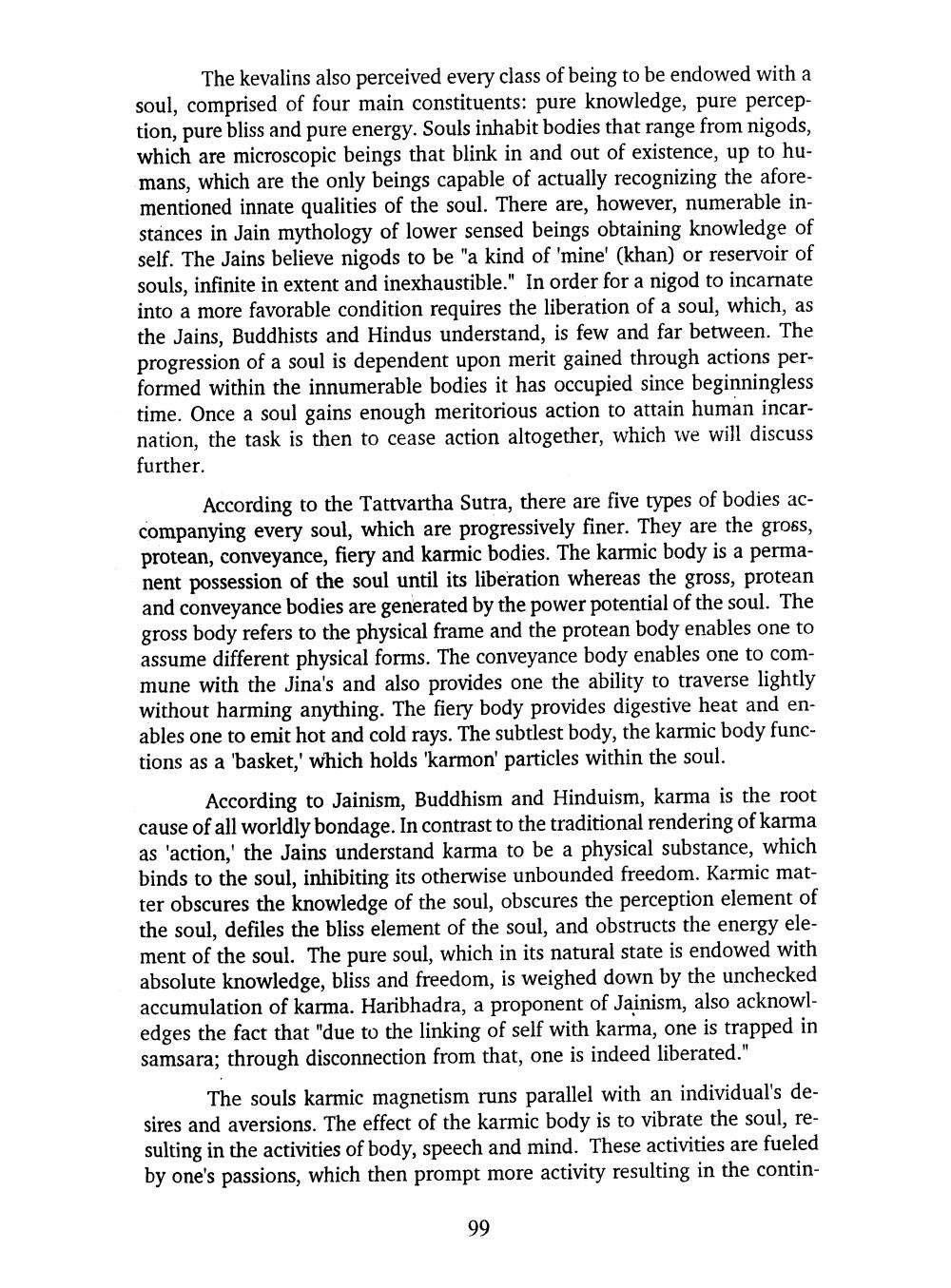________________
The kevalins also perceived every class of being to be endowed with a soul, comprised of four main constituents: pure knowledge, pure perception, pure bliss and pure energy. Souls inhabit bodies that range from nigods, which are microscopic beings that blink in and out of existence, up to humans, which are the only beings capable of actually recognizing the aforementioned innate qualities of the soul. There are, however, numerable instances in Jain mythology of lower sensed beings obtaining knowledge of self. The Jains believe nigods to be "a kind of 'mine' (khan) or reservoir of souls, infinite in extent and inexhaustible." In order for a nigod to incarnate into a more favorable condition requires the liberation of a soul, which, as the Jains, Buddhists and Hindus understand, is few and far between. The progression of a soul is dependent upon merit gained through actions performed within the innumerable bodies it has occupied since beginningless time. Once a soul gains enough meritorious action to attain human incarnation, the task is then to cease action altogether, which we will discuss further.
According to the Tattvartha Sutra, there are five types of bodies accompanying every soul, which are progressively finer. They are the gross, protean, conveyance, fiery and karmic bodies. The karmic body is a permanent possession of the soul until its liberation whereas the gross, protean and conveyance bodies are generated by the power potential of the soul. The gross body refers to the physical frame and the protean body enables one to assume different physical forms. The conveyance body enables one to commune with the Jina's and also provides one the ability to traverse lightly without harming anything. The fiery body provides digestive heat and enables one to emit hot and cold rays. The subtlest body, the karmic body functions as a 'basket,' which holds 'karmon' particles within the soul.
According to Jainism, Buddhism and Hinduism, karma is the root cause of all worldly bondage. In contrast to the traditional rendering of karma as 'action,' the Jains understand karma to be a physical substance, which binds to the soul, inhibiting its otherwise unbounded freedom. Karmic matter obscures the knowledge of the soul, obscures the perception element of the soul, defiles the bliss element of the soul, and obstructs the energy element of the soul. The pure soul, which in its natural state is endowed with absolute knowledge, bliss and freedom, is weighed down by the unchecked accumulation of karma. Haribhadra, a proponent of Jainism, also acknowledges the fact that "due to the linking of self with karma, one is trapped in samsara; through disconnection from that, one is indeed liberated."
The souls karmic magnetism runs parallel with an individual's desires and aversions. The effect of the karmic body is to vibrate the soul, resulting in the activities of body, speech and mind. These activities are fueled by one's passions, which then prompt more activity resulting in the contin
99




